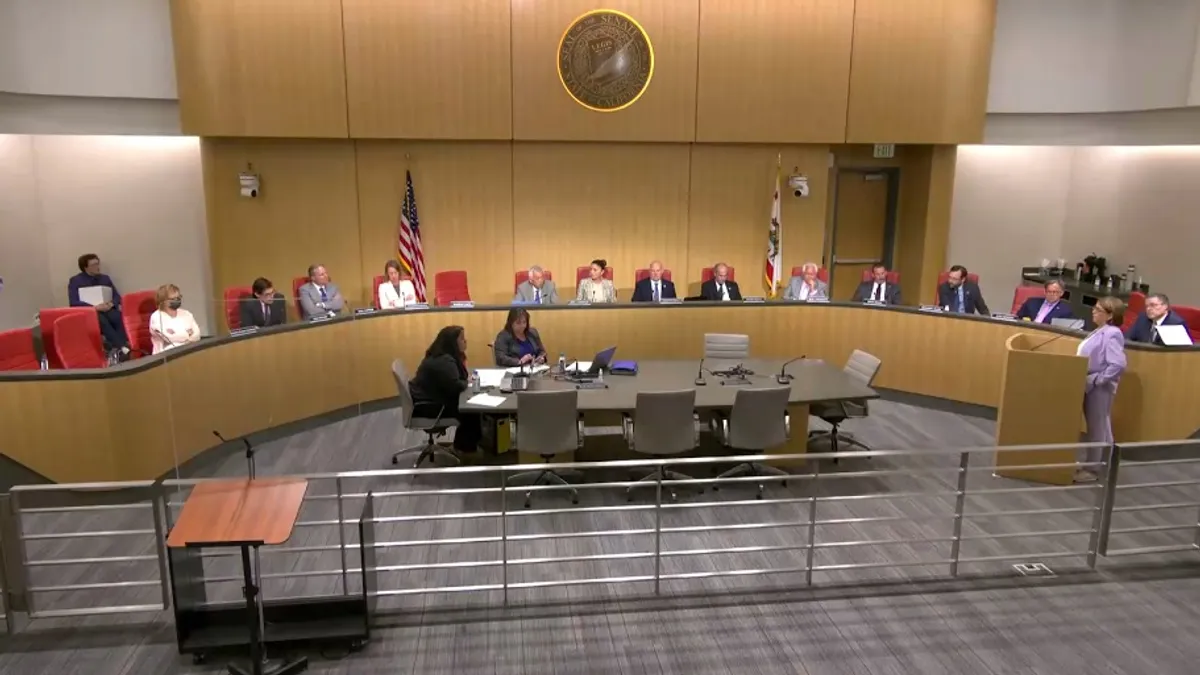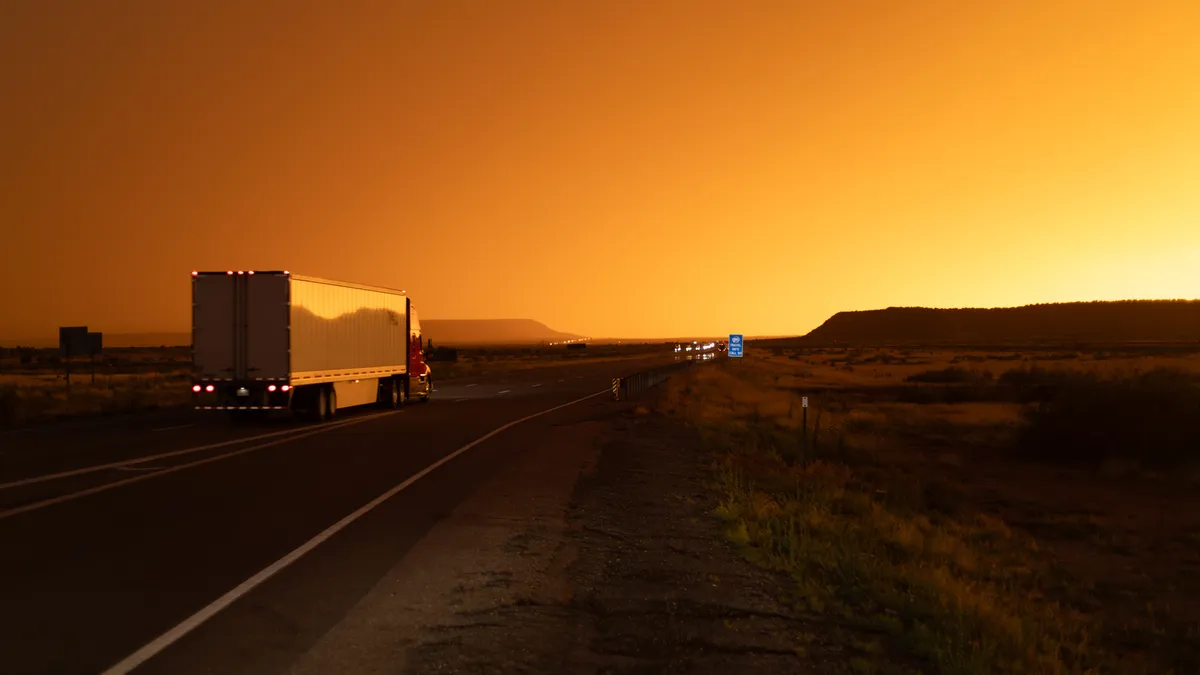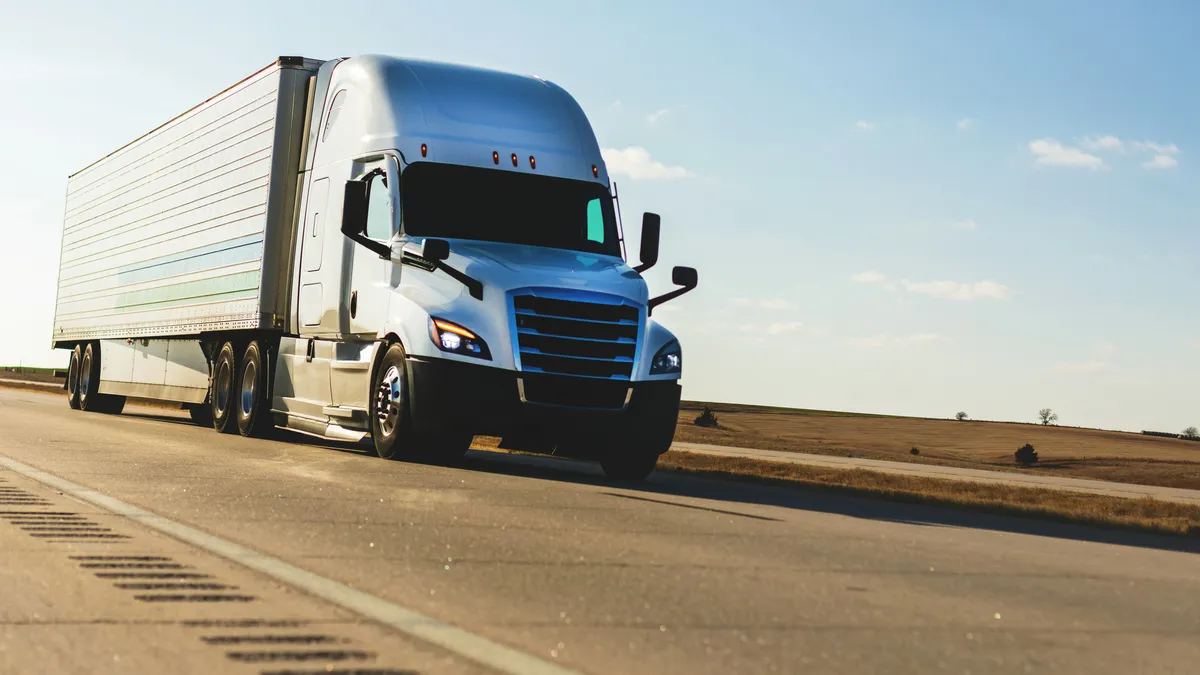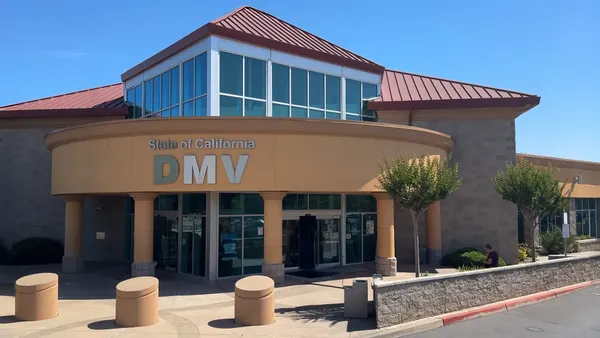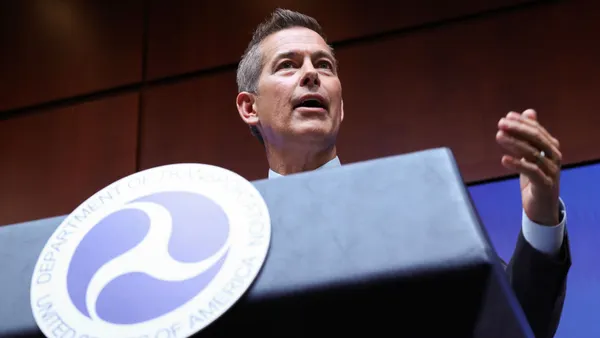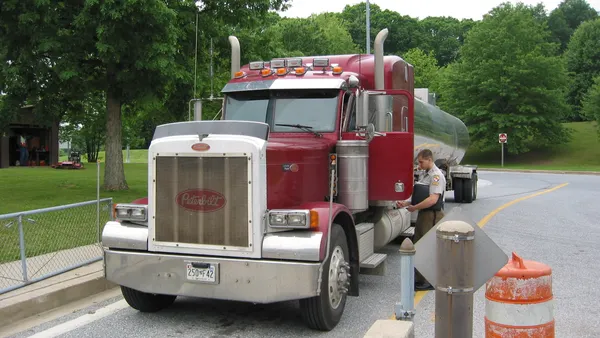Dive Brief:
- Members of California’s Senate Transportation Committee advanced a proposed, sweeping law known as Assembly Bill 316 that could require heavy-duty autonomous trucks throughout this decade to keep a safety operator in the vehicle.
- The bill would restrict autonomous vehicles weighing 10,001 pounds or more. Under the measure, the Department of Motor Vehicles have to submit a policy report by Jan. 1, 2029, or five years after testing. A legislative oversight hearing would follow, and the DMV couldn’t issue a permit until one year later, provided there’s legislative approval.
- The proposal, which previously passed in the California State Assembly, now goes before the Senate Appropriations Committee.
Dive Insight:
The bill’s lead sponsor, Assemblymember Cecilia Aguiar-Curry, said she’s not against the technology but she can’t imagine not having somebody behind the wheel. AB 316 allows the state time to evaluate the issue and collect data, she said.
“When my colleagues and I are convinced there is not a threat to the public, at least one that is demonstrably less than exists with fully trained, professional truck-drivers, the ability for tech-trucking companies to move forward will be allowed by the Legislature,” Aguiar-Curry previously told Transport Dive in an emailed statement in April.
The committee’s chair, Sen. Lena Gonzalez, cited concerns that the DMV has not been very communicative about AVs, so the bill would help make sure the agency is responsive.
The DMV oversees a permit program to allow driverless operations on public roads, but heavy-duty vehicles are currently not allowed, the agency says.
Gonzalez also noted how her father was a Teamsters truck driver for 30 years. “He’s been retired now for seven years, but even to this day is so very happy to talk about his perfect driving record.”
Dozens of Teamsters attended the hearing and voiced their support of the bill. The union later critiqued the DMV as considering a regulatory framework that would allow heavy-duty AVs to operate possibly by 2024 without consent from the Legislature.
“It is undemocratic for such a sweeping public policy change to be implemented by the DMV,” the union said.
Critics of the bill suggested the measure was too stringent and questioned whether legislators should be involved or not.
“In its current form, this bill is not a guardrail. It is a total shutdown of a multibillion-dollar industry in California,” Ariel Wolf, general counsel of the Autonomous Vehicle Industry Association, said at the hearing.
The association has proposed amendments that would keep a driver in requirement for two years, and then sunset that to allow the DMV rulemaking process to continue as it has been underway, Wolf said.
AVIA has also described AVs as vehicles that will make the roads safer and stated there’s never been a fatal AV crash in two years of reporting and tens of millions of miles drive on public roads.
“AB 316 will not make California’s roads safer,” Jeff Farrah, AVIA’s executive director, also said in a post-hearing statement. “Instead, the legislation preserves the status quo: 4,400 lives lost in California last year alone in motor vehicle crashes, overwhelmingly caused by human error.”



